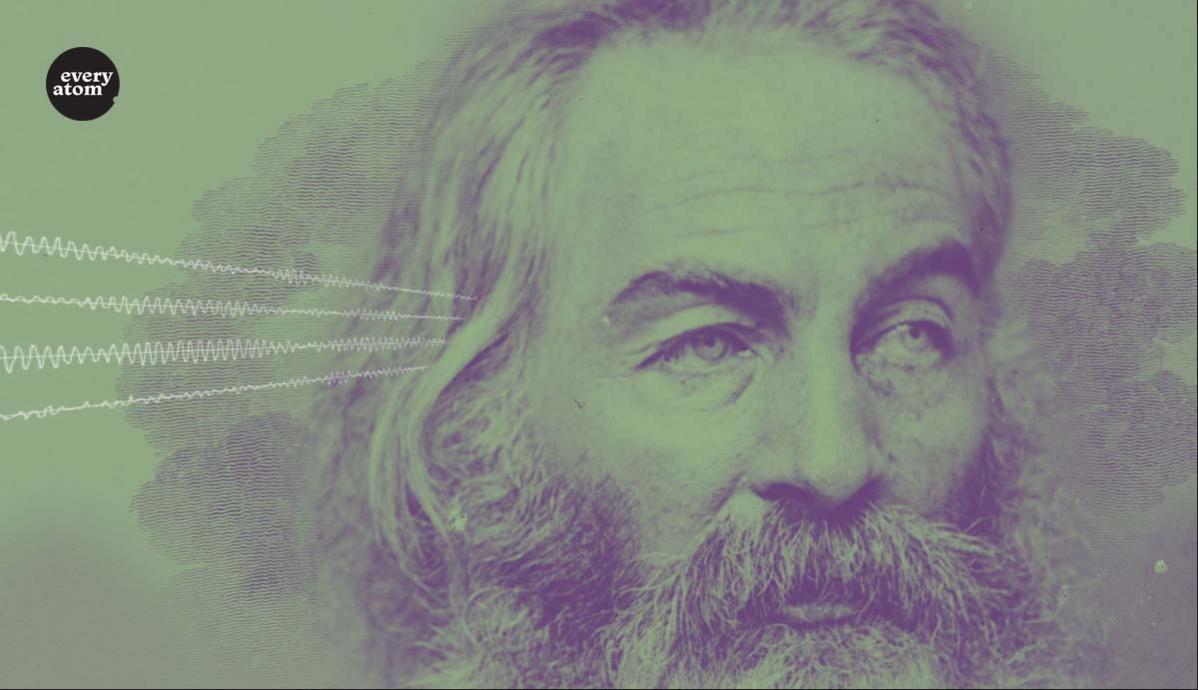Every Atom | No. 126
Introduction to Every Atom by project curator Brian Clements
Theopoetics is a sub-discipline of theology. Literally, it breaks down to theos (god) + poiesis (making). So, a study of how one undertakes the process of making god.
Theopoetically, Whitman took Emerson’s homespun mysticism—the claim for every individual as “a part or particle of God”—and textually enfleshed it. In his lists and litanies, he identifies and seeks to merge with the persons he comes across and catalogues (“growing among black folks as among white, / Kanuck, Tuckahoe, Congressman, Cuff”), as if to ontologically assert not only the dignity, but also the divinity, of each.
Yet there are definite problems here.
I believe there has to be some meaningful connection between imago Dei—the theological concept of humankind’s being made in the image of God (Genesis ch.1)—and imagination. The imagination, to me, seems to be not only an organ of creativity, but also our faculty for empathy. Like Whitman, we can try and disabuse ourselves of the notion that we possess some definitive (privilege of) perspective—and attempt to imagine the world through a different point of view.
Yet warily, theologian.
Whitman sometimes presented and portrayed the perspectives of others in ways that can feel not empathic but elitist: not imagining into, but colonizing the (reduced, typified) experience of. In an April 2019 essay in Poetry, The Known Unknown: Persona, Empathy, and the Limits of Imagination, Camille Rankine describes the power dynamics and impasses implicated in what we often call empathy, and suggests that what we actually need is attentiveness: a commitment to simply being present to and heeding the story another is offering.
Problematic as Whitman’s omnivocal ventriloquism may be, I hope I am right in believing that he also practiced this latter form of presence and attention.
Serving for nigh a decade in the Civil War hospitals of Washington D.C.—visiting patients, writing letters, bringing fruit, tobacco and small gifts—Whitman gave deeply of himself in his ministry to living, human constituents of America the poem.
I wonder which was the truer poetry: the writing of lines that incarnated notions of the Self that were healthful and vitalizing, or the actual touching of lives? Perhaps the love he tendered was Whitman’s fullest embodiment of the theopoesis he claimed within his poems: the act of self-giving through which he palpably, physically helped “make God” for another.
Recommended
Nor’easter
Post-Op Appointment With My Father
Cedar Valley Youth Poet Laureate | Fall 2024 Workshop







